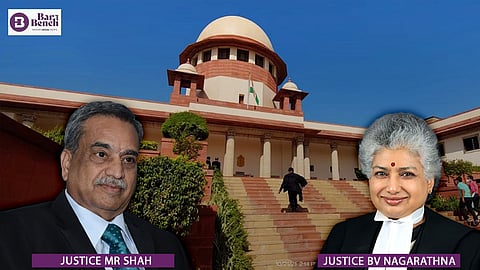
- News
- Columns
- Interviews
- Law Firms
- Apprentice Lawyer
- Legal Jobs
- हिंदी
- ಕನ್ನಡ

The Supreme Court has held that an injunction cannot be granted against a true owner or title holder and in favour of a trespasser or a person in unlawful possession [Padhiyar Prahladji Chenaji (Deceased) vs Maniben Jagmalbhai (Deceased)].